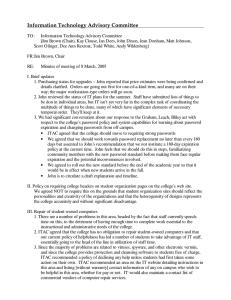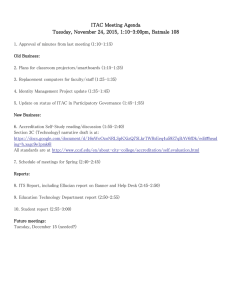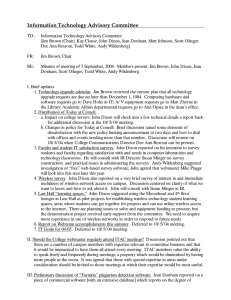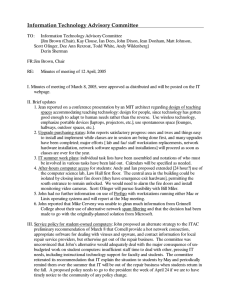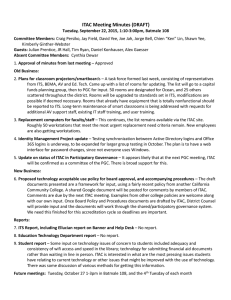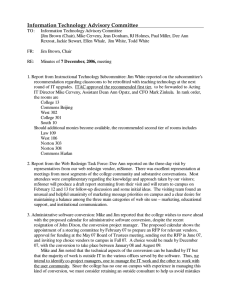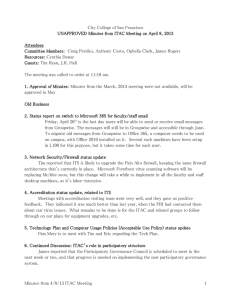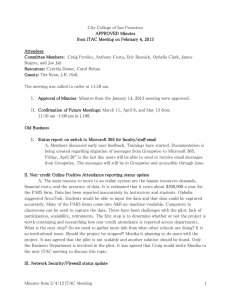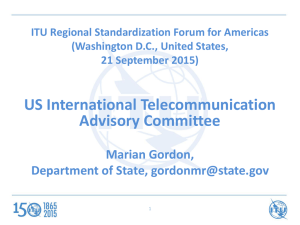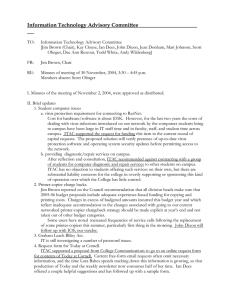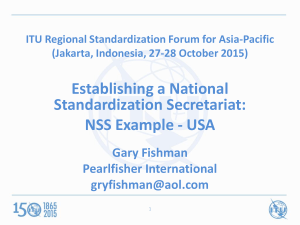Information Technology Advisory Committee
advertisement
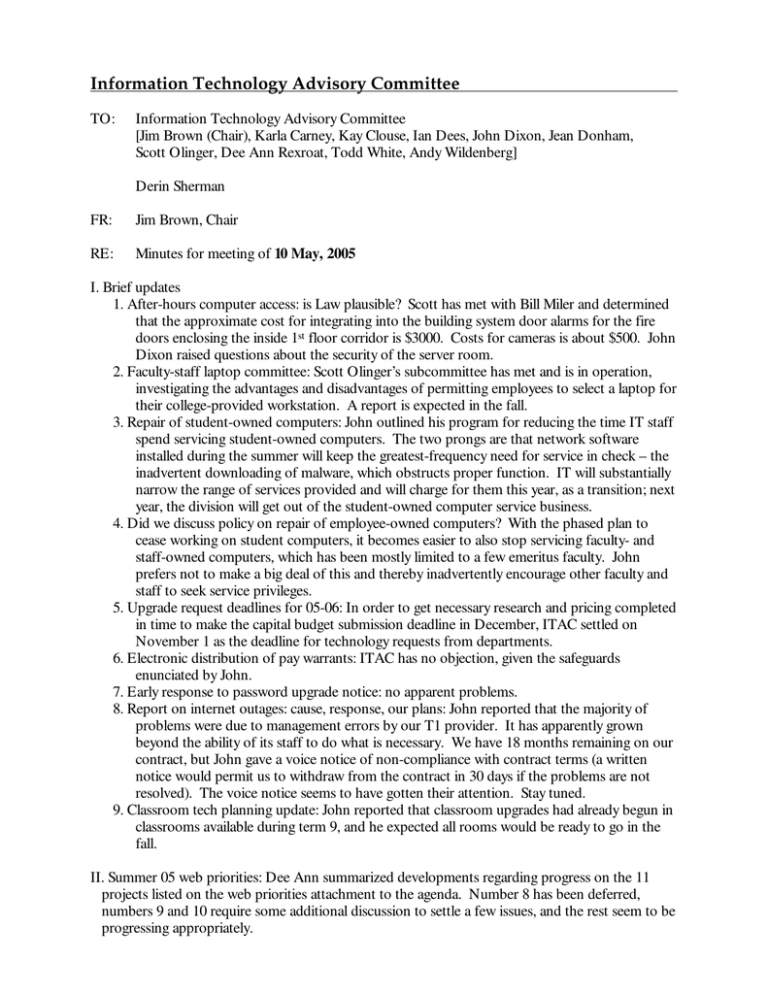
Information Technology Advisory Committee TO: Information Technology Advisory Committee [Jim Brown (Chair), Karla Carney, Kay Clouse, Ian Dees, John Dixon, Jean Donham, Scott Olinger, Dee Ann Rexroat, Todd White, Andy Wildenberg] Derin Sherman FR: Jim Brown, Chair RE: Minutes for meeting of 10 May, 2005 I. Brief updates 1. After-hours computer access: is Law plausible? Scott has met with Bill Miler and determined that the approximate cost for integrating into the building system door alarms for the fire doors enclosing the inside 1st floor corridor is $3000. Costs for cameras is about $500. John Dixon raised questions about the security of the server room. 2. Faculty-staff laptop committee: Scott Olinger’s subcommittee has met and is in operation, investigating the advantages and disadvantages of permitting employees to select a laptop for their college-provided workstation. A report is expected in the fall. 3. Repair of student-owned computers: John outlined his program for reducing the time IT staff spend servicing student-owned computers. The two prongs are that network software installed during the summer will keep the greatest-frequency need for service in check – the inadvertent downloading of malware, which obstructs proper function. IT will substantially narrow the range of services provided and will charge for them this year, as a transition; next year, the division will get out of the student-owned computer service business. 4. Did we discuss policy on repair of employee-owned computers? With the phased plan to cease working on student computers, it becomes easier to also stop servicing faculty- and staff-owned computers, which has been mostly limited to a few emeritus faculty. John prefers not to make a big deal of this and thereby inadvertently encourage other faculty and staff to seek service privileges. 5. Upgrade request deadlines for 05-06: In order to get necessary research and pricing completed in time to make the capital budget submission deadline in December, ITAC settled on November 1 as the deadline for technology requests from departments. 6. Electronic distribution of pay warrants: ITAC has no objection, given the safeguards enunciated by John. 7. Early response to password upgrade notice: no apparent problems. 8. Report on internet outages: cause, response, our plans: John reported that the majority of problems were due to management errors by our T1 provider. It has apparently grown beyond the ability of its staff to do what is necessary. We have 18 months remaining on our contract, but John gave a voice notice of non-compliance with contract terms (a written notice would permit us to withdraw from the contract in 30 days if the problems are not resolved). The voice notice seems to have gotten their attention. Stay tuned. 9. Classroom tech planning update: John reported that classroom upgrades had already begun in classrooms available during term 9, and he expected all rooms would be ready to go in the fall. II. Summer 05 web priorities: Dee Ann summarized developments regarding progress on the 11 projects listed on the web priorities attachment to the agenda. Number 8 has been deferred, numbers 9 and 10 require some additional discussion to settle a few issues, and the rest seem to be progressing appropriately. III. Message Board policy: the committee discussed principles for college online message boards suggested by webmaster Mike Plagge. The committee suggested some revisions; Mike and Dee Ann will edit the document and consult with students when they return in the fall. ITAC will review the revised document for approval in the fall. IV. Online Alumni Community: ITAC discussed the desire of College Advancement for the online community to have an appearance and personality of its own, something which differs somewhat from the college standard. ITAC had no problem with this. V. Policy on providing computers for new faculty: the disjunction between capital requests and new faculty hiring. Jim consulted with CFO Glenn Dodd on the problem that new faculty are hired after the December capital request to the trustees Some new faculty require non-standard hardware or software, yet there is no opportunity to request funding in the normal manner. Glenn said that he has no objection to purchasing what is essential and covering the expense at the end of the fiscal year, as long as the number and price of necessary purchases remains modest. VI. Web management and redesign plans: will be considered in the fall.
